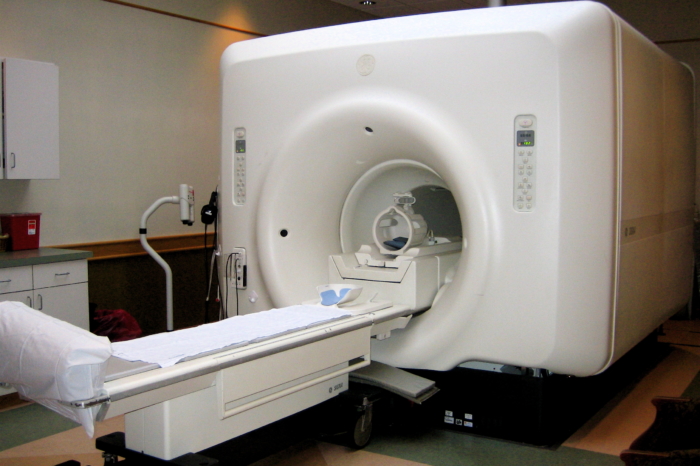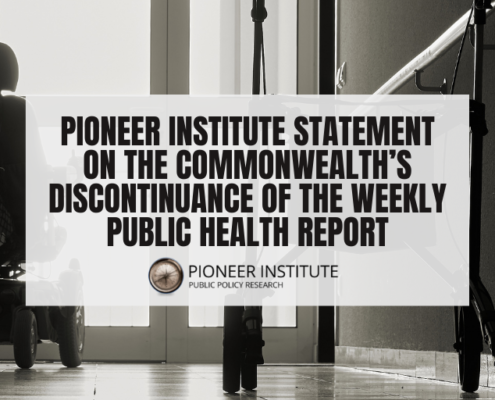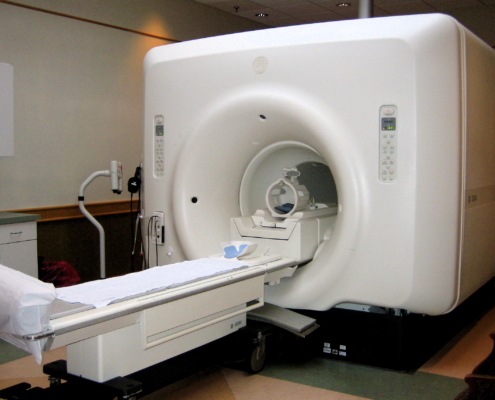Study Finds Patient Cost for MRI Largely Unrelated to Overall Price or Insurer Contribution at 14 MA Hospitals
Read coverage of this report in WCVB-TV, Boston Herald, the Boston Business Journal, the Worcester Telegram and Gazette, and FierceHealthcare.
Authors recommend greater transparency and financial incentives for patients to choose lower-cost, high-value providers
BOSTON – There is little correlation between a patient’s out-of-pocket cost and either the amount insurers pay or the overall price of a procedure at 14 representative Massachusetts hospitals, according to a new study published by Pioneer Institute.
“Even if patients don’t see differences in out-of-pocket prices among hospitals, higher utilization of more expensive providers drives up the cost of care, which puts upward pressure on insurance premiums,” said Barbara Anthony, co-author of “Wildly Varying MRI Prices at Massachusetts Hospitals: Why We Need Access to Healthcare Prices at All Levels.”
The total price (insurance payment plus patient contribution) of an MRI of the knee without contrast ranged from $476 at St. Vincent’s Hospital in Worcester to $1,423 at Boston Children’s Hospital. Patient out-of-pocket prices ranged from $55 at Mt. Auburn Hospital to $206 at South Shore Hospital. Insurer payments for the procedure were just $352 at New England Baptist Hospital in Boston, but $1,236 at Children’s.
Even though patients paid $55 for an MRI at Mt. Auburn Hospital and $206 at South Shore, the total price of the procedure was very similar at the two hospitals. New England Baptist patients paid about 30 percent of the price of the MRI, while patients at Tufts New England Medical Center and Mt. Auburn paid less than 10 percent of the total.
Anthony and co-authors Scott Haller and Kaila Webb recommend coupling price transparency with financial incentives for consumers to choose lower-cost, high-value providers. The Massachusetts Group Insurance Commission, Harvard Pilgrim Health Care and Blue Cross Blue Shield have programs that help members identify such providers and then in some way share part of the savings with them. The assumption is that insurers want to move members towards lower overall cost providers.
The study is based on data obtained from the Massachusetts Center for Health Information and Analysis (CHIA) and its all-payer claims database (APCD). It includes all MRIs of the knee without contrast conducted in May 2015 at the 14 facilities, which are geographically diverse and represent both teaching and community hospitals.
The authors also call for opening the APCD to the public and they recommend that state and industry leaders undertake a substantive, ongoing campaign to educate the public on the importance of healthcare price transparency.
“This study demonstrates once again the pervasive existence of wide variations in healthcare prices that cannot be explained by cost, acuity or quality,” said Jim Stergios, executive director of Pioneer. “In addition, it shows that overall price is still dominated by institutions with the clout to extract higher prices from insurance companies, and the lack of real consumer price transparency perpetuates this situation,” he added.
About the Authors
Barbara Anthony, a lawyer, is a senior fellow in healthcare at Pioneer Institute focusing on healthcare price and quality transparency. She is formerly an associate at the Harvard Kennedy School’s Center for Business and Government. She served as Massachusetts Undersecretary for Consumer Affairs and Business Regulation from 2009 to 2015.
Scott Haller graduated from Northeastern University with a Bachelor’s Degree in Political Science. He started working at Pioneer Institute through Northeastern’s Co-op Program and then as the Lovett C. Peters Fellow in Healthcare. He previously worked at the Office of the Inspector General.
Kaila Webb is a Jane & Steven Akin Digital Media Fellow for Pioneer Institute. She is as a Wellesley College student majoring in Chinese Language & Culture and Environmental Studies, and serves as Student Director of the Freedom Project. Her research focuses on healthcare policy, environmental development, and public transit.
About Pioneer
Pioneer Institute is an independent, non-partisan, privately funded research organization that seeks to improve the quality of life in Massachusetts through civic discourse and intellectually rigorous, data-driven public policy solutions based on free market principles, individual liberty and responsibility, and the ideal of effective, limited and effective government.
Get Updates On Our Healthcare Cost Transparency Initiative!
Related posts:
















